Since currency trading always involves buying one currency and selling another, there is no directional bias to the market. So you always have equal access to trade in a rising or falling market. The profits of forex are expressed entirely as capital appreciation (or gains). You hope to ultimately sell your currencies for more than you paid to buy them.
What is forex? Understanding the market for exchanging foreign currencies
- The Forex market hosts daily trades of nearly $7.5 trillion a day, making it a highly liquid market.
- Forex markets are a lot less regulated than commodities markets whilst commodities markets are highly regulated.
- While they may seem similar at first glance, there are key differences between the two that every investor should understand.
While an in-depth explanation of currency fluctuation is beyond the scope of this article, changing demand among economies is the short answer.
Difference between forex and stocks
That, along with the highly regulated environment, can put some traders at ease and help them focus on their trading strategy. The comparative freedom from regulation on the forex and its high degree of possible leveraging makes it easy to control large trades. If you’re eager to start trading large amounts of capital, forex trading is for you. This is just one way in which forex markets are less regulated than stock markets. For some, the limits imposed by regulations may push them toward forex trading. Others see regulation as an extra layer of protection against fraud and wrongdoing, so they may prefer to trade in that environment.
Forex Trading vs Stock Trading: Understanding the Key Differences
Stock trading often requires a larger initial investment, whereas forex trading allows for smaller account sizes and the ability to start with as little as a few hundred dollars. The dynamics of the stock market and the forex market differ significantly due to the nature of the underlying assets. Stock prices are influenced by factors such as company performance, earnings reports, and market sentiment. Individual stocks can experience significant volatility based on company-specific events, making stock trading more susceptible to news releases and earnings announcements.
However, penny stocks, which are small capitalization companies, present a different situation. Forex traders need not fear a deviation between the planned and actual prices. Individual stocks can gain more than 5-10% per day during strong bull rallies. This makes them suitable for trading with low leverage or no leverage at all.
Volatility and Risk
Most investors will understand if the oil price goes up, Shell’s profits will go up too. Equally, if the UK does not manage to sign a Brexit agreement, it is a fair bet that Sterling will suffer. In both cases, Forex vs stocks has highlighted how easy it is to form an opinion and place a trade. Your answer to the stock market vs forex market question will depend on a range of things, including your investment goals and risk tolerance. You should also consider the time and resources you have available for trading, as well as your market knowledge and expertise. Though knowing the similarities and differences between stocks and forex trading, and each of their benefits and limitations can be useful to traders, it shouldn’t be the sole deciding factor.
Investors trade currencies in lots, which are simply the number of units of those currencies. There are standard, mini, micro, and nano lots, which consist of 100,000, 10,000, 1,000, and 100 currency units, respectively. Once set up, if an investor thinks that the https://www.1investing.in/ US dollar will rise compared to the Japanese yen, they could buy the US dollar and sell the yen. However, if that same investor thinks the euro will decline relative to the US dollar, they can sell the EUR/USD by opening a sell position for one lot of that pair.
Deciding which of these markets to trade can be complicated, and many factors need to be considered in order to make the best choice. Pattern day traders must maintain a minimum account balance of $25,000 in cash and eligible securities. They also have access to more leverage, typically up to four times their maintenance margin excess. This means they can trade larger positions but also face more significant risks.
Most financial advisors say it’s not so much a matter of skill level, but more your personality and goals that determines whether you should invest in forex or stocks. Certainly, if you are more inclined to “invest and forget” – i.e., investing money toward retirement – and are interested in gradual, long-term growth, then stocks are a better choice. However, if you crave a more active, hands-on trading experience and enjoy the excitement of a fast-moving trading market, forex may be the best fit for you. Stocks are steadierEven in low times, a strong company can keep its value or bounce back from adversity. Therefore, stocks are a better investment for those looking at the long term and who value stability over a chance at quick high returns with the equally high risk of losses.
Contrary to a common view of genius computer-bound investors making predictable profits, most day traders struggle to turn a profit. Robust academic studies typically put the number of those who profit in the medium-to-long term at less than 15% of day traders. These traders are typically looking for easy profits from arbitrage opportunities and news events. Their resources allow them to capitalize on these less risky day trades before individual traders can react.
The only “pair” is between the stock price and the U.S. dollar (if you’re trading in the U.S.). Trump’s commitment was highlighted when he stated he would dismiss SEC Chair Gary Gensler on his first day back in office, aiming to lessen the stringent controls that Gensler advocates. New York-listed cryptocurrency stocks experienced a decline on Monday, following a brief spike caused by Donald Trump’s supportive remarks on Bitcoin. This what is the ratio of output to input drop came as Bitcoin retreated from its recent high over the $70,000 mark, a level not seen since mid-June. According to Nasdaq data on retail flows, retail investors in 2023 poured up to $1.6 billion each day, compared with less than $450 million daily in 2012. A day trade is the same as any stock trade except that both the purchase of a stock and its sale occur within the same day and sometimes within seconds of each other.
Forex trading is a decentralized market, meaning that it operates 24 hours a day, five days a week, across various time zones around the world. The forex market is the largest financial market in the world, with a daily trading volume of over $5 trillion. A popular topic for the forex vs stocks debate refers to market volatility.
The Forex market hosts daily trades of nearly $7.5 trillion a day, making it a highly liquid market. How many times have you heard that “Fund A” was selling “X” or buying “Z”? The stock market is very susceptible to large fund buying and selling.

